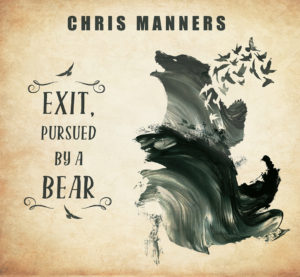Drop the stylus in the groove where it belongs, for the first time in years (and years and years), and the songs jump off the vinyl like old friends, instantly welcome and familiar. The lyrics come back effortlessly, and so do great stretches of stage patter. I’m right back in my early folk club days, full of hope and excitement.
Rosie was a big part of the circuit during the 1970s and 80s, a vibrant performer who lived her own accident-prone soap-opera and mined it for songs that were personal and confessional without ever being mawkish. She was flamboyant, in billowing full-length skirts; played a highly ornamented guitar damn well; and sang in a powerful full-throated contralto — until voice problems forced her into early retirement. She had wild enthusiasms: Barry Manilow, Whitesnake, Isaac Guillory. On-stage, she was charismatic: funny, compelling, and unafraid of discussing love in all its forms, from stolen ecstasy to public heartbreak. Mostly heartbreak. She was Adele with jokes.
This was her eighth album, the first of three on Plant Life, an ambitious full-blown production with Nigel Pegrum at the studio console and ten in the backing band. They’re big songs, and she has a terrific gift for melody — especially a soaring chorus. On her website, Rose calls it the high point of her recording career, and I’d not disagree.
Pride of the river is a hymn to Southern Comfort which used to follow a shaggy dog introduction where responsible drinking was noticeably absent. When he sang Louisiana was inspired by Martin Simpson playing the Randy Newman song about floods in New Orleans.
But most are love songs. Lamenting a bad break-up in Cry in the Dark: ‘I’d rather that I never sang another song / or that my eyes would stay forever blind / than know I’d never waken by your side again.’ Perfect, fleeting happiness, in the title track — a great example of her gift for a big chorus. Or giving it another go, despite all previous failures, in Poor old Rose: ‘Here she goes again, giving it all away, isn’t it just like her — to get carried away? And by him of all people!’
It suffers — just a bit — in the same way that so many ‘big budget’ folk records of the time did: the recording and production are too tame, too middle-of-the-road. I’d love to hear a remix, not that it will ever happen, with more edge and energy to the drums, and the vocals pushed a bit harder too.
There’s not a lot of Rose on-line, though a few bits from this record are on YouTube (for instance here: https://www.youtube.com/watch?v=GHT9am0vc8k), along with some grainy live footage which gives a sense of how she was in her pomp on stage. But the album’s been reissued on CD and is available, as are the other Plant Life recordings Stopped in my Tracks and The Weakness of Eve, and more, from the lady’s website www.rosiehardman.co.uk
After leaving music she became a swimming instructor, with a gift for reassuring nervous learners. Now, I understand, she’s in poor health and housebound. But she made some terrific records and really ought to be better remembered.

